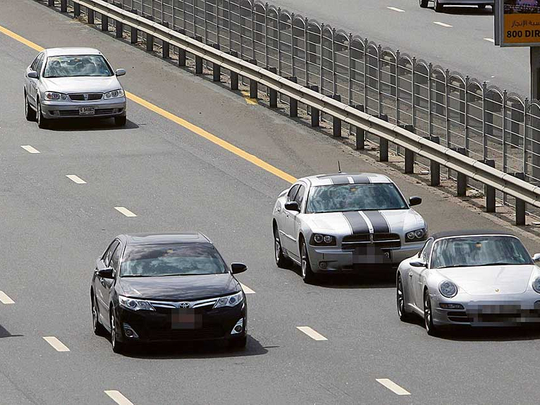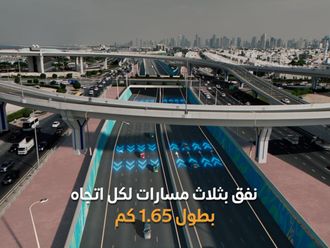
Dubai: Motorists in the UAE are paying around 15 per cent more on vehicle insurance premium compared to last year since January this year, but many of them feel they are not getting back value for the additional money they are paying.
Premiums for both third party and comprehensive insurance for all categories of vehicles were increased after the UAE Insurance Authority revised the unified auto insurance regulations with effect from January.
Apart from a hike in tariff, the amendment to the auto insurance regulations also introduced upper and lower limits to premiums, with the minimum comprehensive insurance premiums restricted to Dh1,300 for saloon cars and Dh2,000 for SUVs, while the maximum cap is at five per cent and seven per cent of the insured value of the vehicles for saloon cars and SUVs, respectively.
The minimum third party premium for a saloon car is Dh750, while the maximum is Dh2,100. For four-wheel drive vehicles, the minimum third party insurance is Dh1,000 and the maximum Dh2,150.
The insured value of the vehicle is decided on the 15 per cent annual depreciation of the vehicle’s market rate, however, according to the new rules, 20 per cent of the insured value will be deducted if the vehicle is written off.
The unified auto insurance regulations also increased damage protection coverage as well as making replacement car mandatory during the repair period, post accident.
The new policies will also include no additional levy of ambulance or medical evacuation fees, which were introduced last year.
However, many consumers say either the benefits are not clearly mentioned in the policy documents or just don’t exist.
“When I applied for the auto insurance last month, I was expecting to see a clause for replacement car in the policy, but it wasn’t there. When I enquired about it with the insurer, I was told it wasn’t mandatory. I was under the impression that under the new laws, it was mandatory,” said Ahmad Shams, an Indian expatriate.
Another expatriate, Mohammad Odeh from Egypt, said that most of the insurers he approached were not willing to issue a comprehensive insurance policy for his 2009 SUV and those who offered were charging way higher than the minimum premium limit.
“I feel the regulations are being implemented only when it comes to hiking the prices. Only one firm agreed to a premium closer to the minimum, but they were forcing me to lower the value of the vehicle much below its market value and I felt they were not offering me most of the benefits,” said Odeh, who is a pharmacist.
According to another consumer, many insurers are refusing to renew policies if there was a claim in the previous year.
“I don’t understand what is the purpose of having an insurance policy if it is not to claim damages in an accident. It should not be legal for an insurer to reject a policy renewal just on a single claim,” said a Pakistani expat, who wished to remain anonymous.
Benefits
Clarifying the doubts of the consumers, experts in the insurance industry said there are indeed some substantial benefits for the motorists in the new regulations.
Jonathan Rawling |
“Aside from the added cost, the new regulations do have some pretty substantial changes behind them. For me, one of the most important is the new minimum cap that an insurer can put on third-party property damage, which has been increased from Dh250,000 to Dh2 million,” said Jonathan Rawling, CFO, compareit4me.com.
He added that the previous regime had left the scope for consumers to be substantially under-insured.
“Many consumers were perhaps unaware that some insurance policies were such that, if you caused an accident that resulted in more than Dh250,000 of damage to the other party, you would be personally liable for the difference. So, if you had a policy with a Dh250,000 limit, and you caused Dh750,000 of damage to a Ferrari, you would be personally liable for the missing Dh500,000,” explained Rawling.
Apart from wider damage coverage, he said, the new tariff includes add-ons that will cover the costs of emergency services in the event of an accident.
However, he clarified that the replacement cars for 10 days or Dh300 per day to cover the cost of car rental will be available only to those who are not at fault.
“It means that those who aren’t at fault do not lose out financially if someone damages their vehicle. Now, if someone hits you and damages your car, their insurance policy will either arrange you a replacement car, or else pay you to rent a car for up to 10 days. This means that you are not in danger of being stranded without transport as a result of someone else’s mistake,” he added.
For those who are at fault, they will get a replacement car only if they have purchased additional coverage.
Another benefit of the regulations is standardisation of the wordings of policies, that brings in minimum levels of cover.
“The regulator has stepped in to ensure that when you buy a policy, you can be more comfortable that it is fit for the purpose. It should no longer be the case that consumers buy policies that are “comprehensive” in name but could in fact leave consumers underinsured,” he said.
The replacement car rule is available in both comprehensive and third party insurance.
Wider coverage
Frederik Bisbjerg |
Further highlighting the benefits of the new regulations, Frederik Bisbjerg, executive vice-president of QIC Insured, said apart from increasing the maximum cover for property damage, the regulations have also extended liability coverage to husbands, wives, children and parents of policyholders.
Refuting the claims of the consumers that insurers are not complying with the new regulations, he said: “This is new to me, I don’t see how we as insurers cannot comply with the laws laid out and I do not know of any specific cases where a customer has been refused eligible benefits. I fear some insurers might not have been precise enough when explaining the new benefits to the customers and hence created the wrong expectations.”
Responding to the confusion over non-renewal of insurance policies due to previous claims he said: “If a customer has a long or severe claims history, the system calculating the new premium will take this into consideration and the outcome can be a larger premium. I don’t know of cases where insurers directly refuse to renew a car insurance, but I understand that some customers might be surprised by an increase in the premium from the previous year. The new rules are seeking to mitigate this by introducing a maximum premium for the car insurance and hence avoid unrealistically high premiums in case the customer has one or more claims.”
It is important to note that the new regulations apply to policies sold on or after January 1, 2017.












